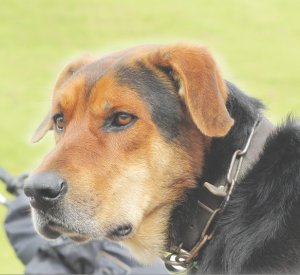Ovis Management is owned by the Meat Industry Association and is responsible for providing advice to vets and farmers on the problem of sheep measles. Lynch has the role of promoting a programme that keeps ovis at a level where it isn’t a problem.
Speaking at a recent BLNZ field day, Lynch pointed out that ‘casual’ dogs coming on to a farm and which are not treated for sheep measles pose a real risk. He says farmers should either ban them completely or require proof from owners that the dogs have been dosed.
While Ovis is not an issue for many farmers, unfortunately there have been some ‘flare ups’ of the disease on some properties.
“In extreme cases they suffer condemned carcasses at the works or the presence of Ovis in the meat will cause carcasses to be downgraded. The whole issue with Ovis is that it provides a risk to markets overseas. Sending parasitic cysts in our meat overseas is untenable,” he warns.
If more than five cysts are found in a carcass it will be condemned. Lynch says fortunately there are not a lot of these, but last year when there were storms in the Lower North Island there were some significant outbreaks of sheep measles on farms, high winds aiding spread.
“A dog defecating can put out hundreds of thousands of eggs onto the pasture. Each tapeworm segment contains 60,00 to 80,000 eggs and a dog will shed two to three segments a day from that one tape worm and that will drift across the farm.”
Sheep measles is easily be contracted by dogs which are fed raw sheep meat, which is why it’s important meat is either cooked or frozen for 10 days to kill the ovis cysts.
“While farmers can feed their dogs biscuits or processed food, the reality is that sheepmeat does provide a large part of a farm dog’s diet.”
Dosing is imperative and is not expensive, he adds. Drugs containing Praziquantel are highly effective but must be used monthly.
“If you dose at say 90 days, which is quite popular, you in fact have a parasite that matures in 35 days so there is window where the dog could be shedding eggs before it’s dosed again.”
And it’s not just farm dogs that need dosing: pets can pose problems too, he points out.
“They are often overlooked, but pet dogs tend to have freedom of the farm. They travel around the farm in the truck and may not be controlled and have access to sheep,” he says.
Traded lambs are another potential ovis spread mechanism, particularly where they’re brought onto cropping farms which run little stock during the year and so don’t dose dogs, who as a result may be spreading ovis eggs.
“Lambs that have never been exposed to sheep measles and have no immunity to it are highly susceptible and can easily go to the works heavily infected. It’s important with trading and finishing operations that there is a good dog dosing system in place so that lambs come onto clean pastures.”

















